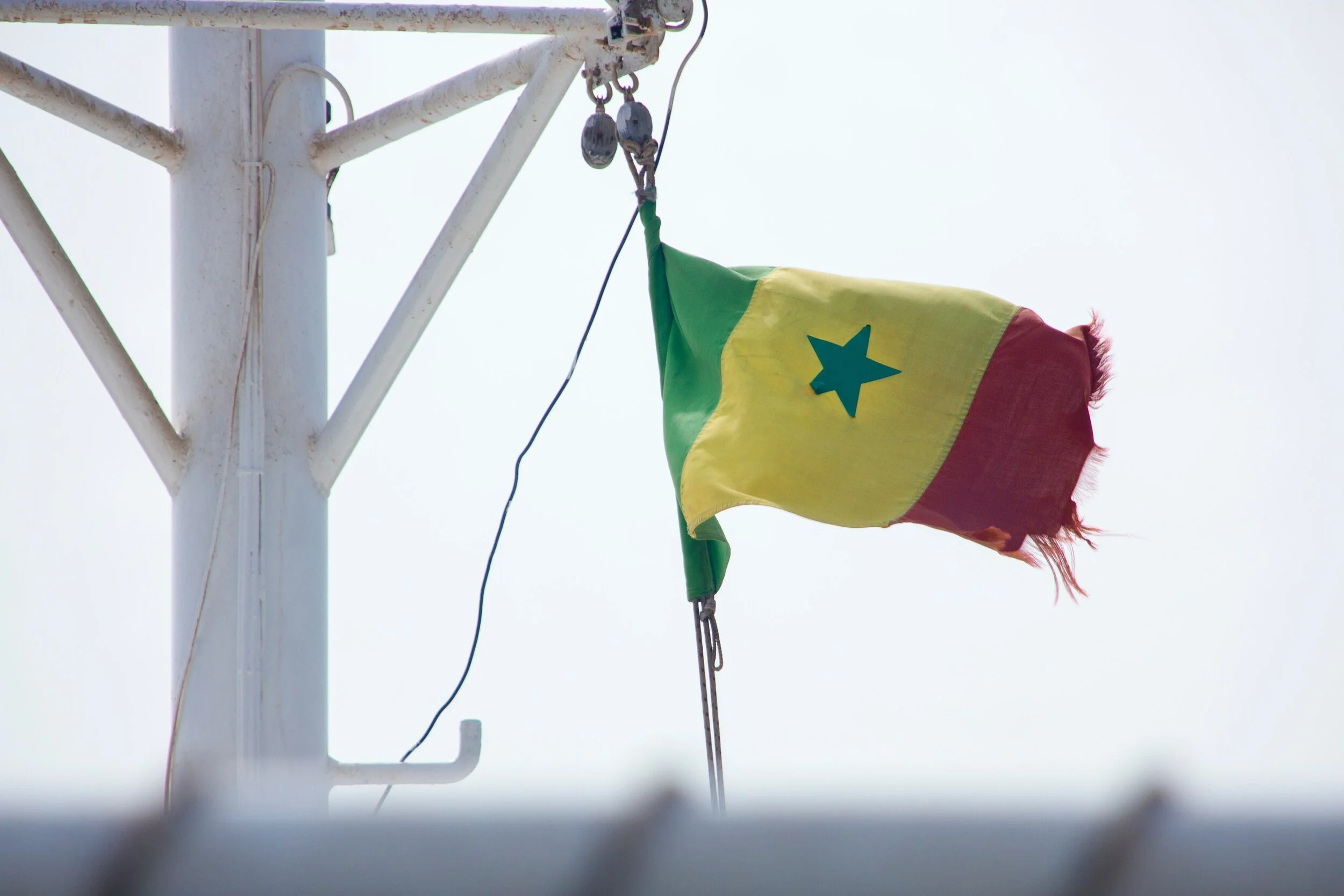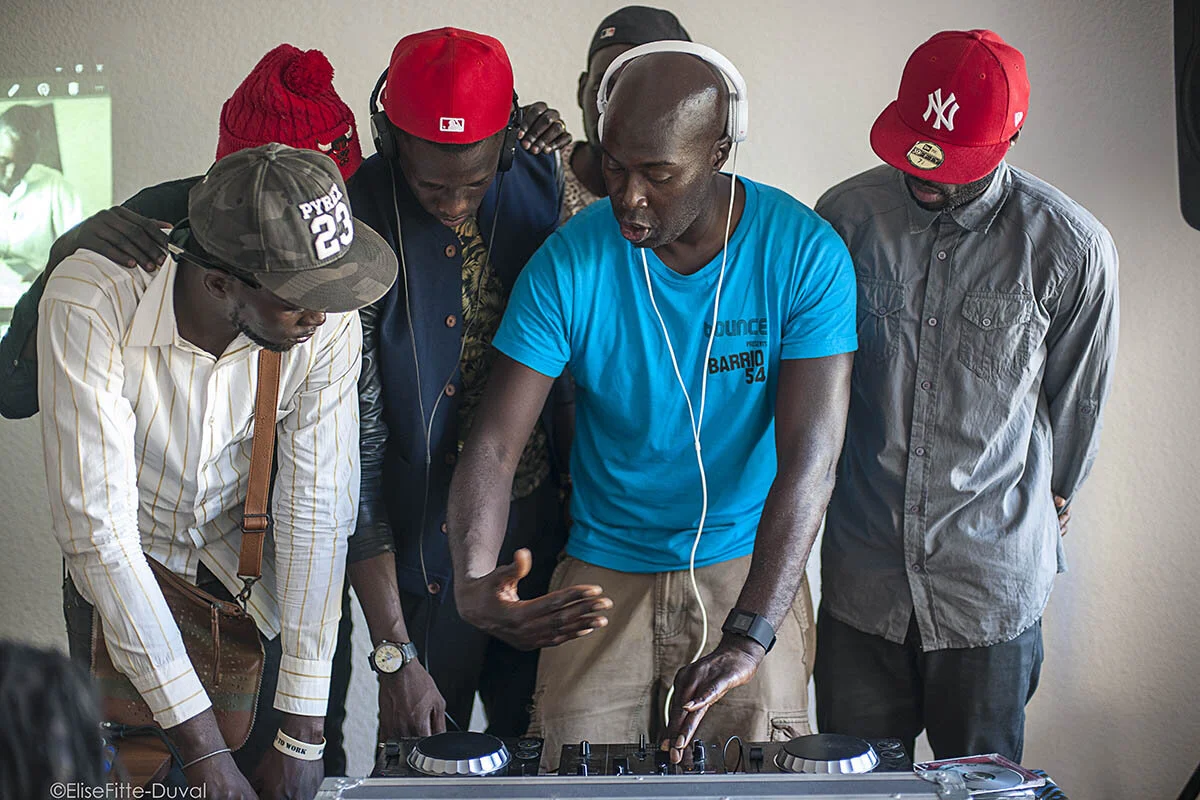Is Senegal the Soul of Hip Hop?
Photo credit: Charlie Oundo
Kwame Daniels is the brains behind Bounce Culture: a collective of creative industry facilitators passionate about empowering people to connect with their “Inner Rhythm,” which they define as activities that encourage happiness daily, increasing productivity. Projects, programmes, courses and workshops are based around using creative technology for personal development. Central to Bounce Culture activity are DJ courses for young people at risk. In 2016 Bounce received funding to run Hip Hop workshops in Dakar, Senegal. I caught up with Kwa to chat about his experience of the Senegalese Hip Hop community, exploring how it’s central to Dakar’s social, political and spiritual movement.
Eazy Kwa! So how did you transition from being a DJ to getting funding from the Northern Ireland Arts council to work in Senegal!?
I’ll try and keep it succinct! I always used to collect music, and I used to run a night called Bounce. That name reflects the energy I wanted when people come in and leave. Positive vibes!
The residency went on for about 8 years. At the same time I was working at the Nerve Centre, an education centre in Derry, Northern Ireland. I did a DJ workshop there as a teacher training thing. They really liked it and said I should turn this into a scheme of work within Music GCSE. Fast forward 20 years later, and you can use decks as your solo or ensemble instrument. So that got me into the mainstream curriculum.
Putting DJing on the mainstream curriculum - what an achievement!
Thanks! That was what got me into community outreach as well, working with young people at risk. Working with anyone with mental health problems, learning challenges, behavioural issues.
“Because ultimately, the Bounce Culture mantra is about finding your inner rhythms. Which are the things that enable us to experience happiness on a daily basis”.
It's connected with music and the tools around music. So that's how it went from the DJ nights to working with education.
So what was the connection from Bounce Culture DJ courses in Northern Ireland, to Bounce Afrika Hip Hop workshops in Dakar?
We’ve always loved ‘most aspects’ of Hip Hop culture, and it just so happens that this connection to Hip Hop was the vehicle.
“Hip Hop in Senegal is a movement that has political weight, social weight”.
You can trace the roots of Hip Hop back to Africa, so it's taken more seriously when you've got a youth movement locking into this massive machine, and using it to influence political and social issues. It's a whole different entity as to how we consume and work within Hip Hop over here. When I say here I mean Belfast, Ireland, the UK, even within Europe. It's really valued and listened to. That's why Hip Hop was the vehicle we ended up connecting to with Bounce Afrika.
It sounds like the Senegalese really celebrate the transformative power of Hip Hop.
The connection we established was actually with a school of Hip Hop, founded and run by Amadou Fall Ba. He’s taken the Hip Hop culture and founded a college called Maison des Cultures Urbaines, where you can learn all the aspects of Hip Hop culture as a further education centre. So doing Bounce Afrika and running the DJ’ing workshops felt like a natural connection... and one they’ve put on another level in the way they’re engaging with Hip Hop.
Photo credit: Elise Fitte-Duval
After watching the Bounce Afrika documentary, I really picked up on the local participants’ attitude towards Hip Hop culture. Words they used were ‘unity’, ‘spirituality’, ‘hospitality’, ‘solidarity’.
Yes! Those words came up when we produced a podcast with the students out there. One of the exercises was to pick one word that you would associate with your area. These were the words that came back, it all connected to Hip Hop culture and what it means to them and how they feel about their area. And the longer I stayed in Dakar, the more I got it.
For them to come back with those answers, so freely and naturally, there’s something that glues all that together. And in my experience it was Hip Hop culture. It was a collective experience that they’ve had, positive and negative, to articulate and communicate those feelings.
Why do you think the community called Senegalese Hip Hop spiritual?
Spirituality is huge. Because they can connect with the words in a way that actually changes their environment for the better, you know? They’ve seen that positive impact happen through Hip Hop.
In terms of delivery we did one workshop where we had a powercut, obviously disrupted the flow as power cut in and out for a couple of hours but it ended up in our favour. When power was restored, we were like you know what over to you! We’re just gonna get beats, hand over a mic and see what you can do.
90% of the participants were able to start ciphering, freestyling. It looked as natural as breathing and walking. Obviously they’re practising, but this isn’t just a throwaway thing, they live in this.
“They’ve been immersed in this culture and they're confident enough to articulate it and skillful enough to think about subject matters close to them and communicate in rhyme, with rhythm, at speed, ‘off the bat!’ I think that’s the spiritual side of it”.
The work people like you and Amadou have done is beautiful, I’m honoured to share it. Did you feel like there’s an influence from the US or would you say Senegalese Hip Hop feels more wholesome?
Yes and no. There’s certain elements that are US influenced. Because it’s more the commercial end of the US stuff, it's there because you have to fit into a certain narrative and image in order to sell in that amount of volumes that it would sell to Sub Saharan Africa. And you definitely see some of that filtering in.
But Bounce Afrika focused more on the soul and gravitas of what they’re doing. Samira, the female spoken word Hip Hop artist we worked with, she’s unbelievable. She’s about the soul of Hip Hop and her own soul and her own truth and getting that out there.
In the doc one of your colleagues mentioned a 'sense of sisterhood’ in Senegalese Hip Hop. Can you expand?
Karima’s words carry weight, we love her! She is the director of Imagination Afrika and without her, this hook up doesn’t happen! Yes, Karima said if you look at the social construct of a female’s place in Senegalese culture: women in Hip Hop is the polar opposite. So for females to break out of that and come back actually saying they’re gonna start shaping how they look and who they are. That's huge. But it’s dangerous. They’re taking risks. That's a flip in that in the documentary Karima expresses far better than me. But that's another one, in terms of the spirituality of this. What Hip Hop culture can do on a social front is powerful.
Photo Credit: Elise Fitte-Duval
Boiler room just did a documentary about female DJs in Nigeria, you should definitely check that out. It seems hard for women trying to break through, so it’s hugely to your credit that you’ve helped create this safe space for women to practise.
Yes I really hope it’s shone a bit of a light on what's going on! But for us it's only the beginning. We don’t just want to get a bit of funding, parachute in and leave. We’re planning to go back and also to Ghana and Kenya, but you can interview me again in 6 months about that ahah!
I would love to! So how will that impact your work in Bounce Culture back home in Northern Ireland?
Anything we do here now, it needs to have a global outlook and focus. Bounce Afrika has given us more of an insight which can be transferred on a global scale. Because we want to start making our participants think outside of Northern Ireland. Especially now with Brexit, it would be really natural to think inwardly about our position here. With our global connections becoming less and less. But we need to look outward.
I have a similar ethos with Rave Report. Thanks to the internet it's easy to make connections with people all over the world. You just have to reach out, like I did to you!
It’s so important to investigate and physically talk and meet. Don’t be afraid to agree to disagree or find out what has disconnected as well as connects us and be honest about your place. To do that you've got to be aware of yourself.
“You’ve got to be connecting with your inner rhythms. Connecting with what makes us happy. If you’re in that positive mindset, if you have that confidence, other things are less likely to influence you in a negative way”.
So you can go forward and things don't become a threat. So much rubbish comes from insecurity. When you have lack of knowledge and self awareness of things around you. An echo chamber which our social media channels can easily become, is an unhealthy place to exist.
I like to think projects like Bounce Afrika contribute to creating honest spaces to bring people together between African nations and eventually linking to us on the island of Ireland.





